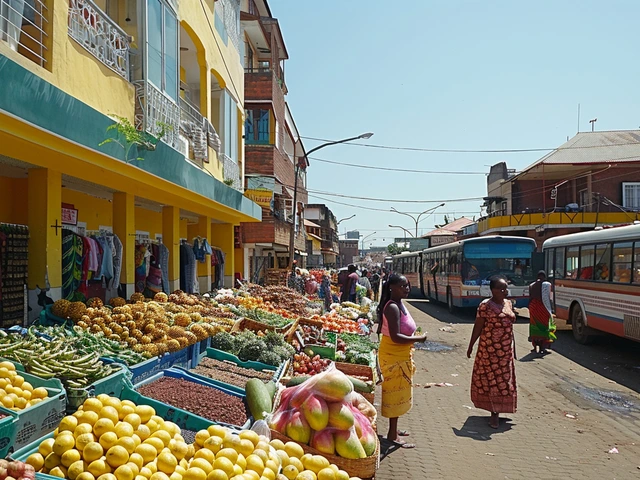Ethiopia Middle Class: What Does It Really Look Like?
Ask anyone in Addis Ababa—what does it mean to be middle class in Ethiopia? You’ll hear answers that cover everything from monthly salaries to renting a decent home in the city. Unlike in some countries, being “middle class” here isn’t just a number in your bank account. It’s about how much you earn, where you live, and whether you can cover essentials like rent, food, and transport—and maybe save a little or invest in your family’s future.
Let’s break down the numbers. On average, salaries in Ethiopia vary wildly. A professional, such as a pharmacist or a teacher, might take home between 10,000 and 20,000 Birr per month. For a family looking to rent a place in Addis Ababa, monthly rents start around 6,000 Birr in less central areas and climb much higher in premium neighborhoods. Most middle-class families have to budget carefully, balancing school fees, food, and the occasional emergency.
Thinking of moving up the ladder? High-paying jobs in tech, business, or even government can push salaries past the 25,000 Birr mark. However, these jobs are more competitive and often require higher education or special skills. Investments—think agriculture, small businesses, or even tech startups—are another route. Plenty of Ethiopian millionaires started small and grew their money through relentless hustle and a few smart decisions.
Want to stretch your salary further? Many middle-class folks look for additional ways to boost their income. Some teach online, freelance, or launch side businesses in areas like e-commerce or consulting. The internet is opening new doors, with opportunities to make money beyond the traditional route. But challenges remain: PayPal isn’t always accessible, and navigating the digital landscape here takes street smarts and patience.
Let’s not ignore the housing question. Urbanization is bringing more people to cities, driving up rents and prices. Shared apartments are the norm for many singles and young families. For those lucky enough to land jobs in high-demand sectors such as construction, manufacturing, or telecom, there’s the possibility to save for a small home purchase over several years. But most folks are still renters, hustling to keep up with rising costs.
What about lifestyle? For most, being middle class means having security—not worrying about next month’s rent, sending kids to a decent school, and affording healthcare. Eating out? Rare, but not impossible. Vacations happen mostly during national holidays when family trips double as rest and reconnection time.
If you’re eyeing Ethiopia’s middle class from outside—or hoping to rise into it—focus on skills that are in demand, watch the housing market, and look out for chances to invest. Above all, be prepared to adapt. The country’s economy is growing, but the middle class is still working hard for every success.





